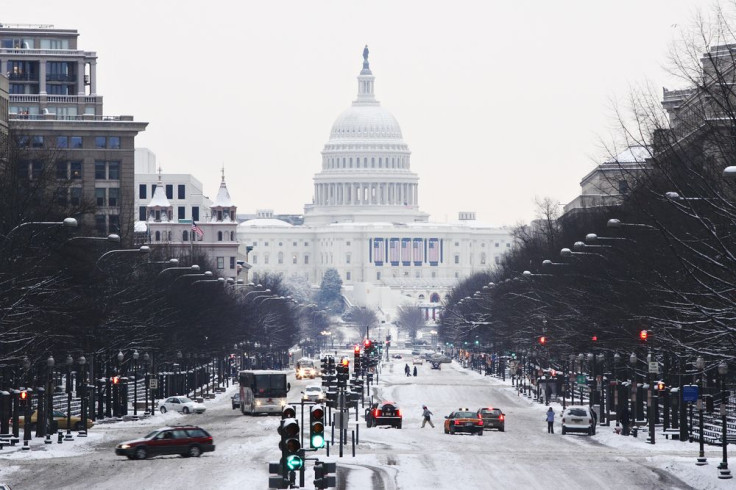Lobbyist Spending Scaled Back 12 Percent In 2013

Lobbyists are spending less these days, at least if trends from 2013 continue. According to an Open Secrets report, lobbyist expenses dropped considerably in 2013, sinking 12.5 percent from $584.2 million in 2012 to $511.3 million. While some of 2012’s top spenders on lobbying increased their expenses in 2013, overall numbers were down.
Considering that 2013 also saw the least productive Congress in years, passing fewer bills than any year since World War II, it might have been a wise move to cut back spending somewhat. The federal government shutdown, however, appears not to have affected lobbyist spending, as numbers increased on average in the final quarter of 2013.
The U.S. Chamber of Commerce saw the largest decrease, cutting back its lobbyist spending by nearly half. In 2012, the Chamber stood as the largest spender in the nation with $136.3 million dedicated to lobbying. In 2013, that number dropped by 49.7 percent to the comparably scant $68.4 million. The second-largest decrease came from Southern Company, which decreased spending by 17.5 percent, from $15.5 million to $12.8 million.
Though lobbyist spending decreased overall, some organizations still stepped up their spending in 2013. Defense contractor Northrop Grumman (NYSE:NOC), for example, jumped from the the ninth-biggest spender in 2012 to the third biggest in 2013, increasing its spending 17.1 percent from $17.5 million up to $20.5 million. Similarly, the National Cable & Telecommunications Association increased spending by 5.1 percent, to $19.8 million vs. 2012’s $18.8 million.
The largest jump in spending, measured by percentage, came from the American Chemistry Council, which spent 35 percent more in 2013 than in the previous year. The organization spent $9 million on lobbying in 2012, increasing that to $12.2 million the following year.
Open Secrets found no trends as to which industries decreased or increased lobbying in 2013. Northrop Grumman, for instance, invested more heavily in lobbyists, but other defense contractors, like Lockheed Martin (NYSE:LMT) and United Technologies (NYSE:UTX), decreased spending by 5.7 and 4.1 percent, respectively.
The same lack of trends applies to other industries as well. While Microsoft (NASDAQ:MSFT) noticeably increased lobbying 29.7 percent from $8 million to $10.4 million, Google (NASDAQ:GOOG) scaled back from $18.2 million to $15.4 million, a 15.2 percent decrease.
© Copyright IBTimes 2025. All rights reserved.






















